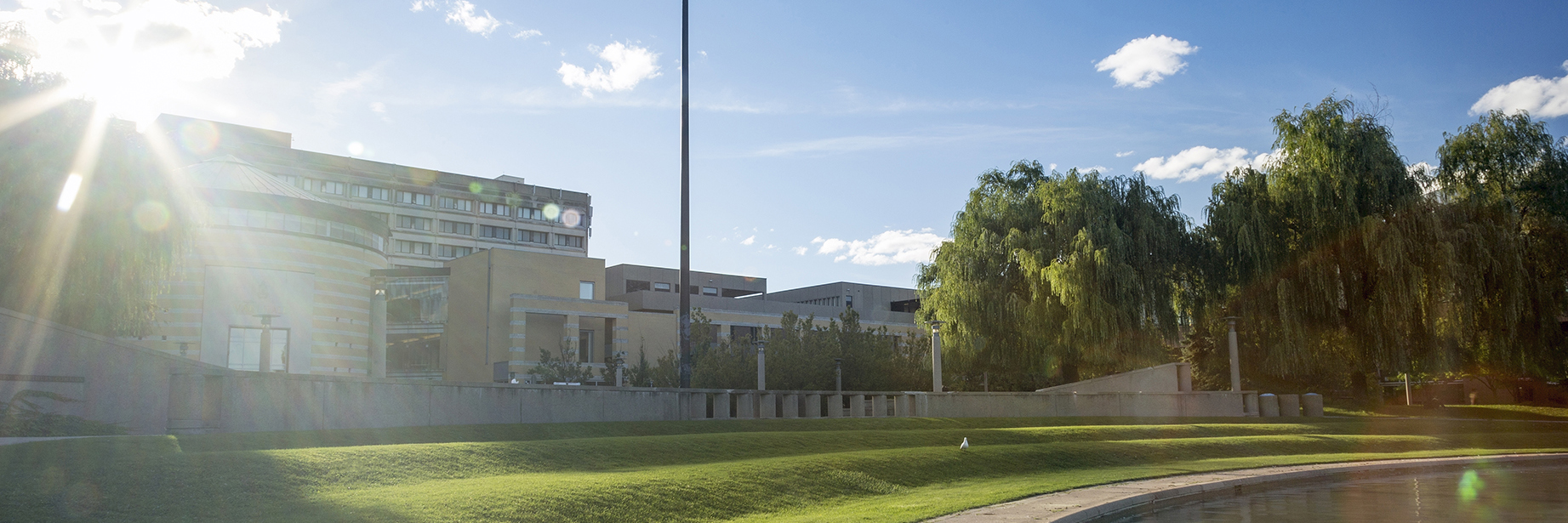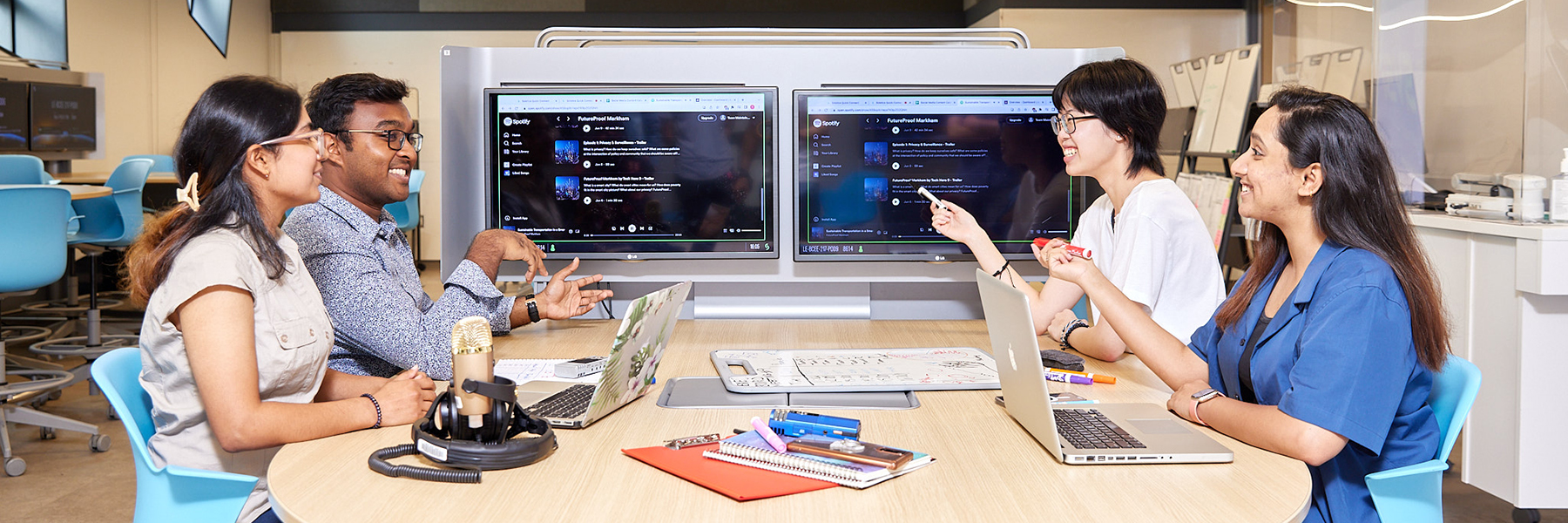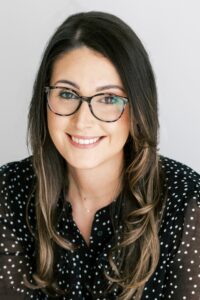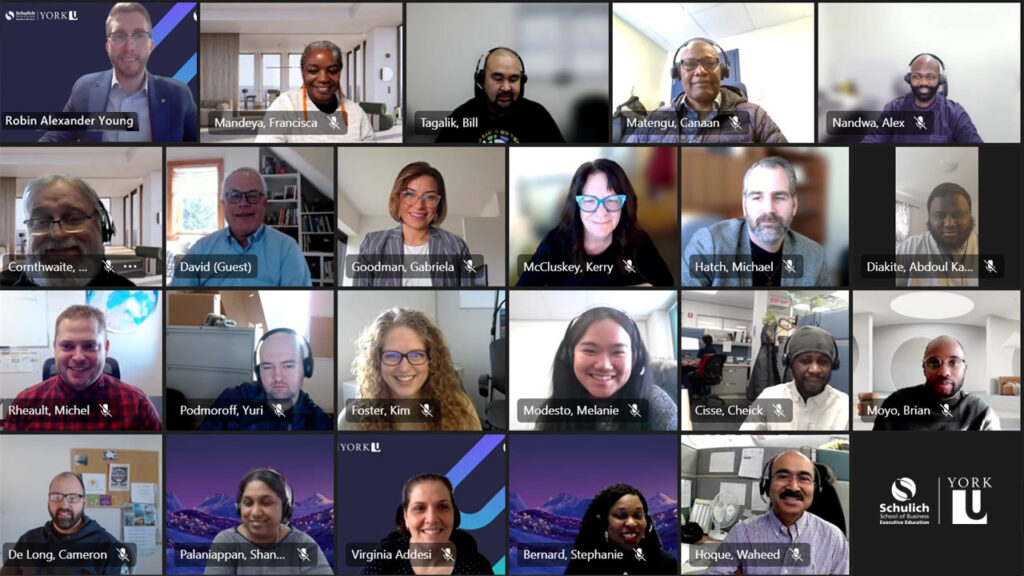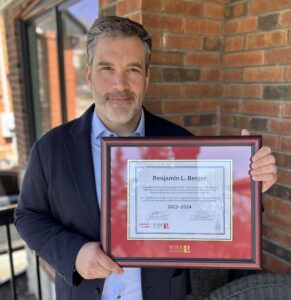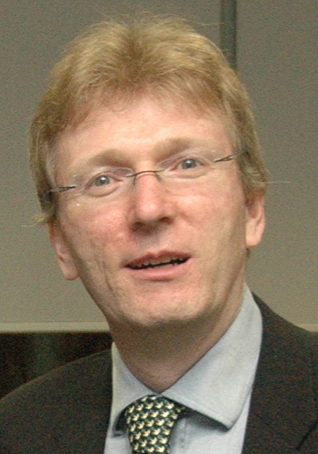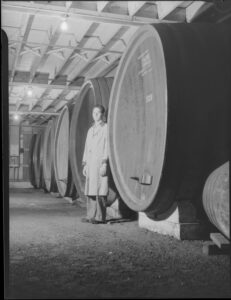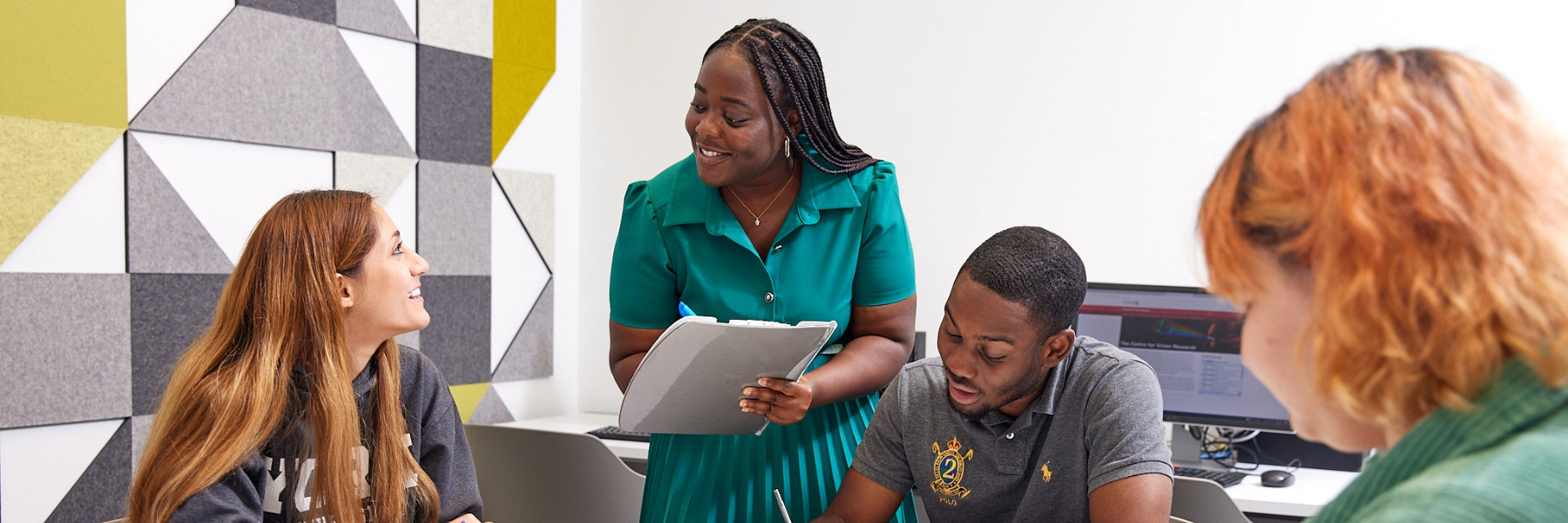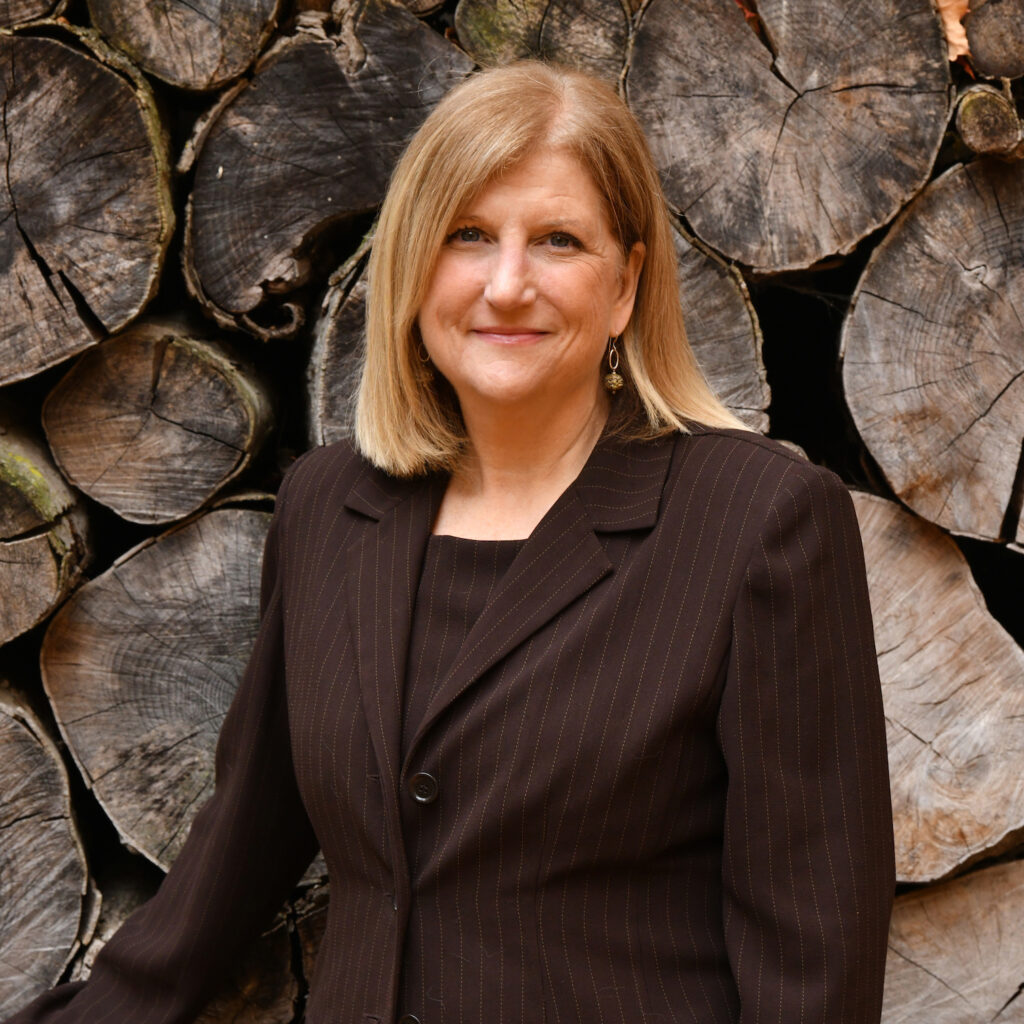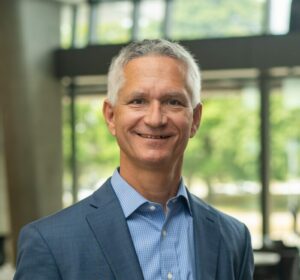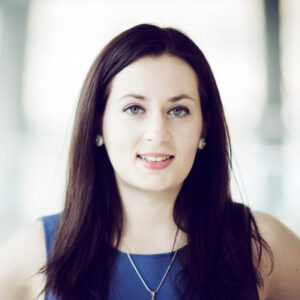Over 300 interested York University and high-school students attended the inaugural Faculty of Environmental & Urban Change (EUC) Green Career Fair in January.
In partnership with the not-for-profit organization Green Career Centre, the event welcomed students to the Health, Nursing & Environmental Studies Building to explore possibilities for careers that aren’t often well promoted, but for which there is a growing need among employers. A recent worldwide survey by the Manpower Group found that 70 per cent of employers are urgently recruiting or planning to recruit green talent and people with sustainability skills.
The idea for the fair came from Lauren Castelino, a master of environmental studies student at EUC and founder of the Green Career Centre, who organized a fair last year, attended by EUC staff. The centre focuses on providing under-represented youth with green career opportunities, advancement and inclusion.
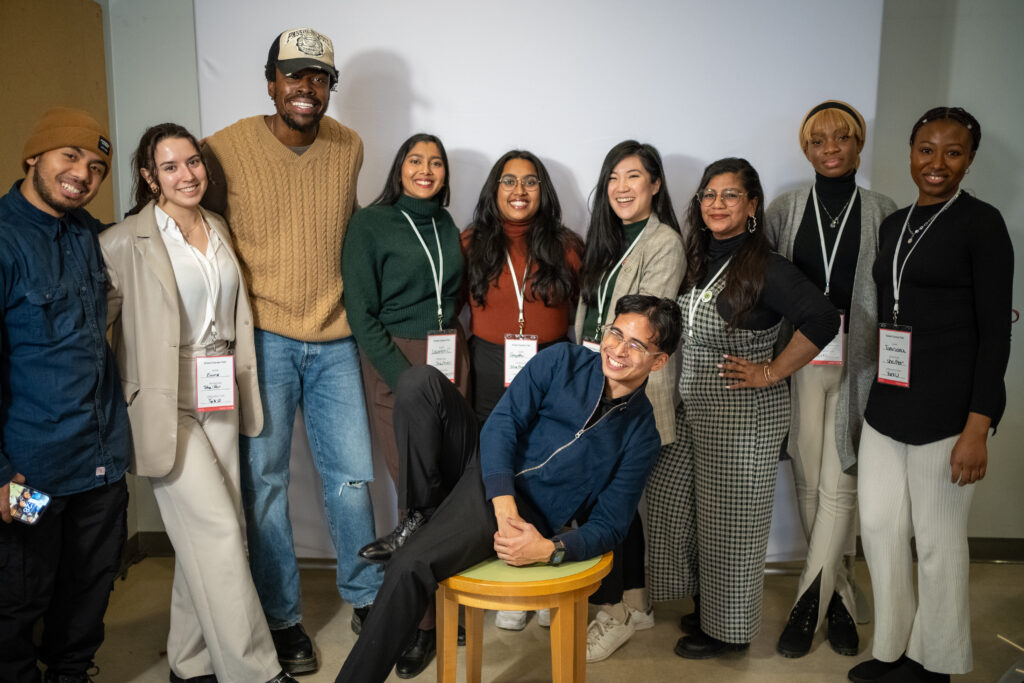
From left to right: Joel Famadico Jr., Emma Bramante, Kenneth Ebhomeye Oko-Oboh, Lauren Castelino, Gayathri Baiju, Joanne Huy, Rosanna Chowdhury, Shaniah Hutchinson, Tomisona Oludairo, Bottom: Lester Pinlac
“We mutually thought it would be a great idea to expand the reach of the initiative by working together,” said Castelino, who is also pursuing a diploma in Business and the Environment from EUC and the Schulich School of Business. “EUC’s facilities were much larger than the first venue we used … and we were also appreciative of the staff support we could receive through the collaboration.”
“We intentionally held our full-day event on the same day as the university-wide Career Fair hosted by the York Career Centre as a way of taking advantage of the synergy,” said Joanne Huy, an alumna who graduated in 2015 and is now the alumni engagement and events officer for EUC. “Staff at each event suggested that attendees visit the other fair, too. It was a win-win situation.”
The partners invited EUC students and alumni to participate and invited everyone from York and the local community to attend. The day featured a morning of workshops followed by the career fair. The workshops included a presentation about net-zero programs given by staff from York’s Sustainability Office, a session focused on green job resources and a panel featuring EUC alumni. There was also a speed networking event matching alumni with groups of students for more intimate conversations.
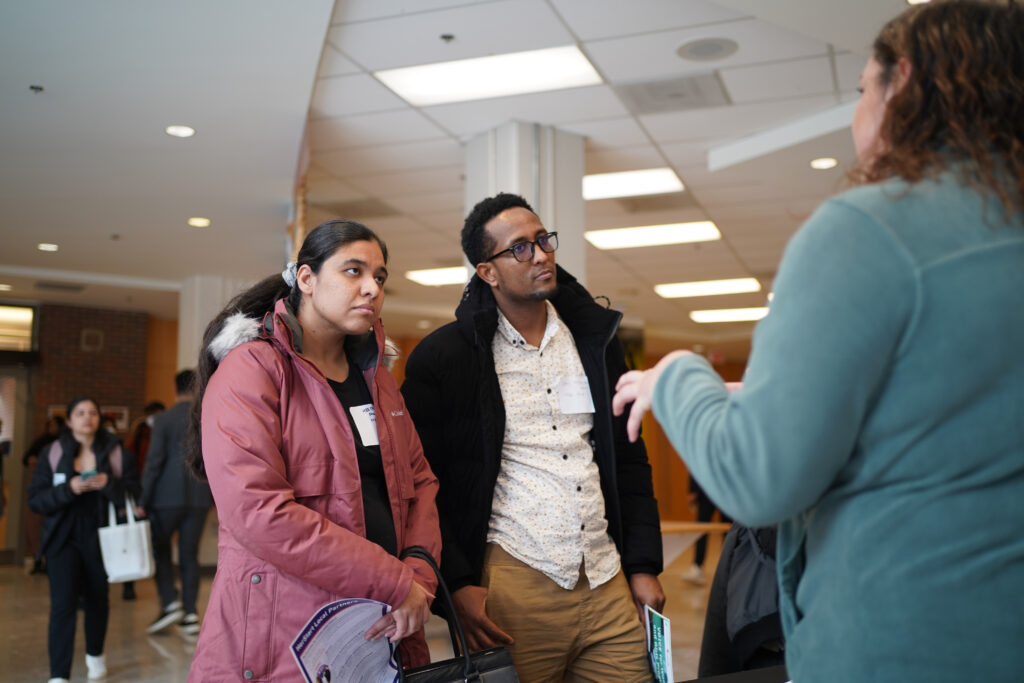
“I’m dedicated to empowering the next generation of changemakers, so it was great to invite our alumni panellists back to campus to share their career paths and discuss how EUC prepared them for the future,” said Huy. “We have 13,000 alumni worldwide and they are eager to contribute. It’s meaningful to them and to our current students.”
The Green Career Fair itself featured booths set up by more than 20 organizations involved in environmental work, including the Toronto & Region Conservation Authority, the Community Climate Council and Outward Bound. Participating organizations focused on issues such as food insecurity, environmental policy, environmental arts and environmental education. Exhibitors showcased jobs, internships and volunteer opportunities.
Muzamil Gadain, an alumnus who graduated from EUC in 2023, works as a project co-ordinator for the Black Environmental Initiative, an organization that works to foster change that considers cultural roots, including issues such as food security and food sovereignty. He, along with a co-worker and a volunteer, used their booth to recruit volunteers.
“We weren’t actively hiring, but there were volunteer roles we needed to fill,” said Gadain. “About 20 volunteers signed up, so it worked very well. We also had an opportunity to network with other like-minded organizations and made some good connections.
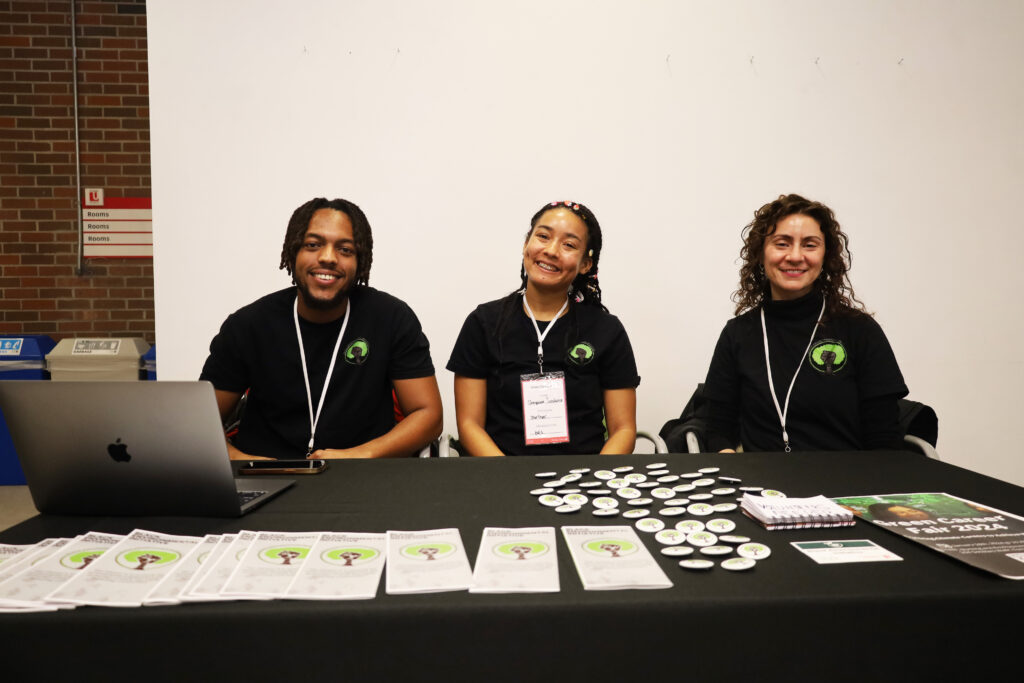
“Our supervisor was very pleased to have access to university youth and we are happy to be able to help them develop their skills. Some of them have already made contributions by developing social media content and contributing to articles. It was a worthwhile event and we would definitely do it again.”
Emma Bramante, an EUC work-study student who is majoring in sustainable environmental management, helped organize the event by doing outreach to organizations and potential employers. She also contributed to the development of marketing materials and helped to raise awareness to students, alumni and organizations.
The high turnout delighted her and she is eager to see the Green Career Fair blossom and grow.
“I anticipate an expansion in the scope of exhibitors, with a broader range of organizations participating, including both established environmental companies and emerging grassroots organizations and non-profits,” Bramante said. “Furthermore, I anticipate the integration of virtual components into the fair to increase accessibility and reach a wider audience beyond the local community.”
Castelino, too, was thrilled by the interest the Green Career Fair generated.
“I was so ecstatic to see this event come to life, and to reach more under-represented youth,” she said. “Some highlights included having three workshop presenters, four speakers, eight sponsors, 21 vendors and 300-plus attendees. I was so grateful to have the opportunity to share my knowledge through a Green Jobs Resources Workshop.”
In June 2023, led by Castelino, Huy and Rosanna Chowdhury, the Green Career Fair was one of four applications awarded funding through the Sustainability Innovation Fund. The Faculty has now built the event into its annual budget.
“Going forward, the fair will also give us a chance to build relationships with organizations as we develop our EUC co-op program,” Huy said. “The synergies are beautiful to see.”



